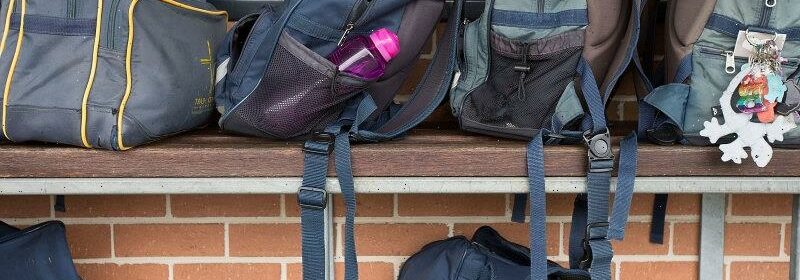Unholy row: Catholic schools split over teacher pay and conditions

Victoria’s Catholic schools have split during negotiations over teacher pay and conditions, with staff in almost 50 schools in the state’s east winning salary increases and reduced teaching hours, while teachers in the rest of the state risk being left behind.
School governing bodies have contemplated raising fees so that schools can hire extra teachers to cover the teaching time reductions, and even making modest cuts to class times for students as two possible solutions to the bargaining impasse, which threatens to disrupt preparations for the 2023 school year.
Catholic school teachers face heading into the 2023 school year with worse pay and conditions than government school teachers.Credit:Michele Mossop
Catholic school staff have been pushing for 15 months for a new four-year agreement that will put them on par with state school teachers, including 2 per cent annual pay increases, a 90-minute a week cut to classroom teaching time and increases in time-in-lieu for extra duties such as camps and parent-teacher interviews.
The Catholic diocese of Sale, which governs 47 schools stretching from Narre Warren in Melbourne’s outer south-east to Orbost in east Gippsland, has exited the drawn-out talks and struck its own four-year deal with the Independent Education Union.
But governing bodies for the rest of the state, including the Melbourne archdiocese, and Ballarat and Sandhurst (Bendigo) dioceses, have so far failed to agree to the union’s demands to reduce teacher workload.
One Catholic primary school principal said teachers felt betrayed after putting themselves at risk to keep schools operating during more than two years of COVID-19 outbreaks.
“Teachers feel like they are being betrayed by our employers, particularly over the last two years of COVID,” Mark Williams, principal of St Martin De Porres School in Avondale Heights, said.
Williams, who is also president of the Independent Education Union’s Victoria and Tasmania branch, said teachers would continue to leave the profession prematurely until schools confronted the issue of excessive workloads.
“[Melbourne archdiocese Catholic schools] are delaying negotiations and looking at the doom and gloom rather than the positive bigger picture for making teaching a more attractive profession to get into,” Williams said.
The current Catholic schools agreement will expire this year and there have been more than 30 meetings, beginning in May last year, over a new deal.
Parties in the negotiations said agreement had been reached over pay increases, but negotiations had bogged down over workload reductions, especially on matching the state government’s commitment to reduce face-to-face teaching time by 90 minutes a week.
The government schools agreement includes a promise to hire an extra 1900 teachers.
Catholic schools would similarly have to recruit hundreds of extra teachers from next year, one secondary school principal said. Catholic schools educate 21 per cent of Victorian students, compared with 64 per cent in government schools.
“There are, at ACU [Australian Catholic University] 170 final-year education graduates, so whilst it’s a great idea to reduce class time, there’s just not the teachers around to actually employ them,” Penola Catholic College principal Chris Caldow said.
Darren Egberts, principal of Sacred Heart College in Kyneton, said “decreasing face-to-face teaching is a fabulous idea because it does recognise that workload for teachers has grown exponentially in the last 20 years, and that’s why many teachers are choosing to leave the profession”.
However, he said there was no straightforward solution to paying for the extra teachers that would be needed, other than raising fees.
Some negotiators have suggested cutting into class time for students to achieve the teaching hour reductions.
But Williams said this approach was intolerable.
“Trying to shave a few minutes off each lesson is not an educationally viable thing to do for students,” he said.
Catholic school staff are barred under the terms of their multi-employer agreement from taking protected industrial action that might pressure school leaders into hastening negotiations.
While Victorian government school staff engaged in low-level actions such as refusing to attend meetings and banning politicians from school grounds, Catholic staff have been limited to holding public rallies outside of school hours.
The union this week wrote to Catholic principals and urged them to enter breakaway negotiations in the interests of striking a new deal in time to plan for the 2023 school year.
“It is now clear that negotiations for a multi-employer agreement are not proceeding efficiently and we give notice that we seek a separate agreement with you, as one of the 32 employers represented in the negotiations to date,” Independent Education Union general secretary Debra James wrote.
Catholic Education Commission Victoria executive director Jim Miles said Catholic education authorities wanted to reach agreement on pay and conditions as soon as possible. A number of commitments, particularly regarding workload reduction, have already been made, he said.
“We recognise and deeply value the professionalism and dedication of our staff,” Miles said.
“We aim to allocate resources in ways that deliver the best outcomes for students and families while fairly and responsibly rewarding our staff.”
The diocese of Sale was contacted for comment.
The Morning Edition newsletter is our guide to the day’s most important and interesting stories, analysis and insights. Sign up here.
Most Viewed in National
From our partners
Source: Read Full Article
